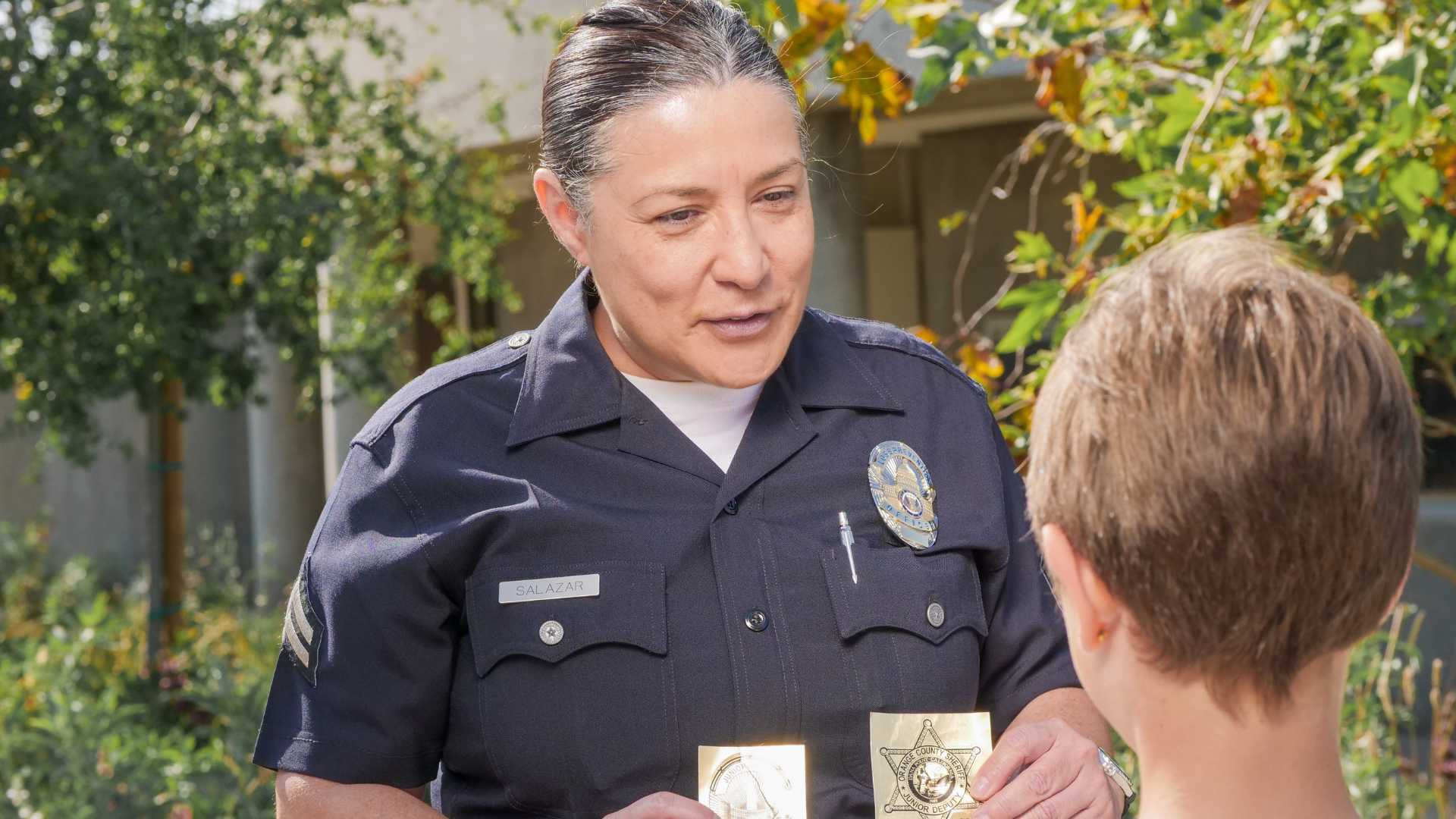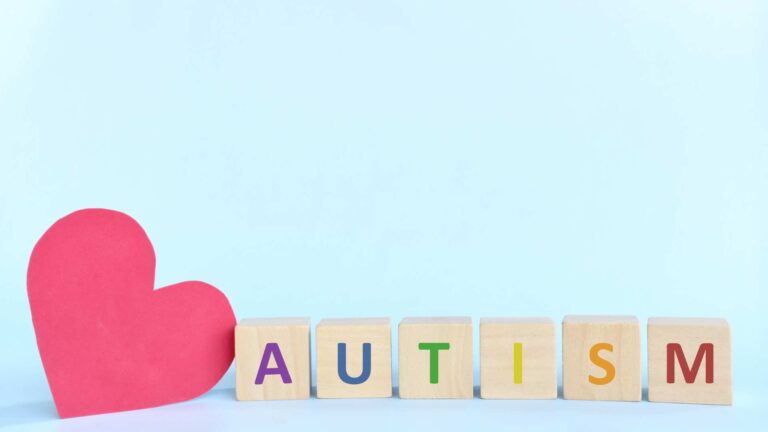It is crucial to approach the interactions between people with autism and police officers with sensitivity and care. Many parents and caregivers of individuals with autism experience concern about the potential interactions their loved ones may have with law enforcement and their reactions in an emergency. Anticipating these scenarios is critical to preventing undesirable outcomes. That’s why, at Texas ABA Centers, we’ve created a guide with seven effective strategies to promote safety in encounters between people with autism and police officers. It is essential to learn how to prepare your loved ones to interact safely and calmly with law enforcement, especially if your child tends to wander or is on the cusp of a more independent life, thus ensuring their well-being in any situation.
Why Addressing the Relationship Between Autism and Police Officers Is Vital
Much work still needs to be done to raise awareness about autism, particularly within law enforcement and first responders. As stated by the International Board of Credentialing and Continuing Education Standards (IBCCES), individuals with autism are five times more likely to end up in prison due to misunderstandings with the police than neurotypical individuals.
Unfortunately, these misunderstandings that result in harm or trauma to someone on the autism spectrum arise from a lack of awareness about autism among authorities who perceive typical autistic behaviors like stimming and avoiding eye contact as threats.
While many police departments are taking steps and training their officers to identify common signs of autism to approach individuals in a more inclusive, understanding, and respectful manner, it is equally crucial that parents and caregivers of neurodivergent individuals implement strategies at home. These strategies help familiarize their loved ones with the expectations related to interactions with law enforcement, which are both essential and unavoidable.
Understanding the Impact of Autism on Individuals
Autism Spectrum Disorder (ASD) influences people’s behavior, communication, and interaction. In most cases, the signs of autism begin to manifest at an early age, although not everyone gets an official diagnosis during childhood.
Everyone on the autism spectrum possesses unique abilities and challenges that require support to minimize their impact on daily life. Often, the areas that need the most robust help in neurodiverse individuals are social interaction skills and verbal and nonverbal communication.
Another common trait in individuals with ASD includes repetitive behaviors, specialized interests, and a sensitivity to stimuli that can complicate their relationship with the environment, the community, and police officers.
To someone outside the world of autism, such as a police officer, these behaviors typical of neurodiverse individuals may seem strange, dangerous, or out of control. These behaviors can attract unwanted attention and lead to misunderstandings. Difficulties in communication and interaction for people with autism can complicate these situations and threaten their safety.
In many instances, dealing with a situation involving a person with autism and police officers can be extremely challenging, as explained by Autism Speaks.
How to Enhance Safety for Individuals with Autism and Police Officers
Although you cannot wholly control the life experiences of your child with autism, some strategies may help address the relationship between autism and police officers to promote safety.
- Use Visual Aids and Social Stories: A proactive approach to interactions with law enforcement is promoting understanding through visual aids and social stories. These resources help your child comprehend the role of the police and emergency responders. People with autism often grasp information better through visual resources that explain the expectations of these encounters. Utilize images, graphics, drawings, and stories to explain to your child who the police are, their role, and how to respond when approached by them. You can find inspiration with this Autism Speaks visual support tool kit.
- Visit Local Police Departments: To acquaint your child with law enforcement officers and other critical personnel, consider planning a visit to nearby police departments. This visit can help your child become familiar with these individuals, their uniforms, vehicles, and emergency personnel.
- Reach Out to Your Local Law Enforcement: Contacting your local police department can be valuable for sharing relevant information about your child’s autism diagnosis. During this interaction, you can provide details about your child’s communication preferences, the areas they frequent, their interests, and whether they tend to wander. This information is invaluable for the police and will assist them in understanding your child’s condition and how to interact in an emergency.
- Implement ABA Therapy: Applied Behavior Analysis (ABA) therapy is an excellent, science-backed approach with a track record over four decades of strengthening children with autism communication and interaction skills. ABA therapy is the gold standard for addressing autism-related challenges and promoting a more independent and successful life.
- Teach Your Child Coping Mechanisms for Anxiety: Encounters between individuals with autism and police officers can often be distressing and trigger anxiety. ABA therapy also provides strategies for managing stress in individuals with autism, such as skills for communicating when a situation is too overwhelming and they need to wear headphones or move to a quieter location to converse. You can also teach your child deep breathing techniques to help them calm themselves.
- Use Identification Resources: In interactions between individuals with autism and police officers, they may request identification. Resources like an autism identification card, as suggested by the National Autism Association, or an identification bracelet can be valuable tools for these encounters.
- Promote Autism Awareness: Engaging with your community and law enforcement about autism and fostering empathetic and respectful interactions with individuals with this condition is crucial. Most misunderstandings occur due to a lack of understanding of autism signs and the appropriate ways to interact with neurodivergent individuals. Working towards a more inclusive world through education can enhance the safety of everyone.
ABA Therapy to Improve Outcomes in Encounters Between Individuals with Autism and Police Officers
ABA therapy is a behavioral approach designed and implemented by specialized professionals in behavior to assist neurodivergent individuals in developing essential life skills. ABA therapy programs are tailored to each client’s specific needs and goals, ultimately striving to facilitate a more independent and fulfilling life.
Many families participating in ABA therapy witness significant changes in their understanding of their loved one’s disorder. They learn the strategies and techniques professionals employ to address challenging behaviors and situations while finding valuable support in navigating a life marked by neurodiversity.
In interactions between individuals with autism and police officers, ABA therapy imparts more appropriate responses to instill greater confidence and control during emergencies. Some of the critical life skills and encounters with law enforcement addressed in ABA therapy sessions include:
- Crisis identification
- Problem-solving
- 911 calls
- Recognizing authority figures in the crowd
- Effective communication alternatives
- Anxiety coping mechanisms
Texas ABA Centers Supports Neurodivergent Individuals and Their Families
We at Texas ABA Centers understand the significance of ABA therapy for individuals with autism. We acknowledge the vital role of providing support to help individuals with autism acquire the necessary skills, thereby enhancing their interactions with their environment, which is crucial in achieving goals and fully embracing life.
Our daily commitment is to foster a more inclusive society and raise awareness about autism. We aim to empower individuals within the autism community to participate and share their unique perspectives on life. We appreciate the importance of promoting safety and ensuring the well-being of everyone in all situations, especially those that have the potential to escalate and endanger the well-being of individuals on the autism spectrum.
Our ABA specialists tirelessly prepare children and adolescents with autism, equipping them with the skills needed to navigate life. Through our ABA therapy services, we enhance the quality of life for our clients and their families by providing valuable tools to collaborate and support our neurodiverse loved ones in their pursuit of success in daily life, school, work, and any other goals they may have.
If you would like to learn more about how ABA therapy can support the development of your loved one with autism, please don’t hesitate to contact us at (877) 771-5725 or leave your information and questions in our online form.








